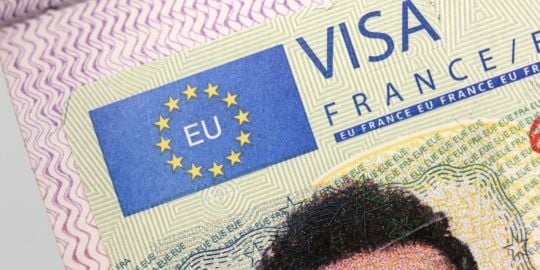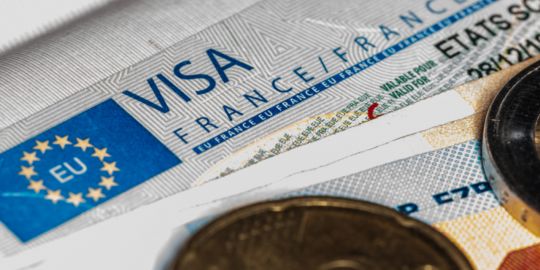Study in France

The French educational system enjoys an excellent international reputation. On top of being home to some of the best schools and universities in the world, France also boasts the added benefit of being significantly cheaper than other educational powerhouses of the world. Whether you intend to study at the undergraduate or postgraduate level, France should be high on your list of countries to consider for further study.
Whereas in the past mastery of French was essential, there are now France-based schools which offer programs taught exclusively in English.
Visas and requirements for studying in France
Nationals of the European Union, Switzerland, Monaco, Andorra and of the European Economic Area can enrol in French universities and faculties without having to apply for a visa. Non-European nationals will have to apply for a student visa in their home country before heading to France if the duration of their studies exceeds three months. For more information on the process of applying for visas, please refer to the articles on visas for France.
In general, students wishing to enrol in a French higher education institution must be in possession of a foreign secondary education certificate or diploma. While most French students will apply using their French Baccalaureate results, international students who have followed other tracks such as the British A-Level system can also apply to directly to French undergraduate institutions. The procedures vary based on the country from which you are applying, and Campus France provides an excellent overview of the different procedures required (please refer to the links at the end of the article). Depending on the school you decide to apply to and the level of your studies, you might be required to prove your mastery of spoken and written French, but keep in mind that many schools, including some very prestigious postgraduate institutions, offer courses exclusively in English.
Types of higher education institutions in France
The French classification of tertiary institutions is somewhat different from what is generally seen in Anglo-Saxon countries. France prides itself on having a meritocratic and highly competitive education system, and nothing epitomises French excellence more than private schools (Grandes écoles) such as école Polytechnique, the école Nationale d'Administration (ENA), the école Normale Supérieure (ENS) or the école des Hautes études Commerciales (HEC). Together, these institutions turn out the brightest engineers, business people and politicians in the country and French talent from these schools is highly sought after both in France and internationally. Unfortunately, the prestige and excellence of the French Grandes écoles is not well publicised internationally, but these schools can easily compete with the likes of Harvard or Cambridge when it comes to undergraduate training.
There are three main families of Grandes écoles: Schools of Engineering, Schools of Management and finally Schools of Art and Architecture. For other disciplines like Medicine, Mathematics or Law, students need to study at one of France's many universities. Note that both schools and universities offer undergraduate and postgraduate courses. For those interested in postgraduate business courses, and more specifically MBAs, France is a great option since it is home to excellent institutions which are more affordable than their American or British counterparts, including schools which are very well ranked internationally, such as INSEAD or HEC.
Enrollment conditions for international students in France
International students can enrol directly in the higher education institution they prefer:
-
if they are already registered on a degree or Masters program in a French university;
-
If they are applying for a graduate or postgraduate program in a university or other subject-specific higher education institution; or
-
in the case of enrollment following a competition (this is the case for example for the French Engineering schools)
You will be required to enrol through the Admission-Postbac website if you:
-
are in possession of a French, European, German-French or International baccalaureate;
-
are an EEA or Swiss national;
-
are moving to France within an agreement between two universities;
-
have received a scholarship from the French government, an international organisation or a foreign government whose scholarships are managed by an accredited French organisation;
-
are either stateless or a political refugee and hold an OFPRA (Office français pour les Réfugiés et les Apatrides) card;
-
are the child of a diplomat who is posted and lives in France;
-
are in a preparatory class for Grandes écoles (CPGE);
-
are in higher technical section (STS); or
-
are in a polytechnic institution (IUT).
Language tests
Students featuring in the second list above need to sit a French language test. Their French writing and speaking skills will be assessed by a Centre International d'Etudes Pédagogiques (CIEP) which is present in all universities. This examination generally takes place in February and March and costs around 63 euros. Exemptions exist for:
-
nationals coming from officially French-speaking countries
-
foreigners coming from French bilingual sections (according to a list established jointly by the Ministry of National Education and the Ministry of Foreign Affairs)
-
holders of the Diplôme Approfondi de Langue Française (DALF) and of the level B2 of the Diplôme d'études en Langue Française (DELF)
-
candidates having obtained 14/20 at the written test of the Chamber of Commerce and Industry of Paris
Tuition fees in France
A complete list of fees for institutions of higher learning can be found in the useful links below. Generally, however, the cost of studying in France is significantly lower than in other countries, given the quality of education you will receive and the opportunities that will ensue. However, keep in mind that postgraduate studies or studies in private institutions will cost more.
Useful links:
Studying in France
Campus France
Diplomatie.gouv
Preliminary Enrollment (DAP) ' White file
Preliminary Enrollment (DAP) ' Green File
OFPRA
Centre International d'études Pédagogiques
Enrollment fees for the academic year 2015-2016









